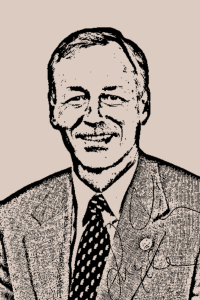It might be argued that, other than former President Bill Clinton, Arkansas’ most famous and beloved son is musical icon Johnny Cash.
So it is appropriate that the University of Arkansas at Little Rock’s Center for Arkansas History and Culture will present its first exhibit this year on Johnny Cash, alongside a series of other events celebrating all things Cash, this fall.
The exhibit, “Johnny Cash: Arkansas Icon,” will open in the Underground Gallery at the Arkansas Studies Institute on Oct. 10 and run through Jan. 24, 2015.
On opening night, the W.S. Holland band will perform in the Ron Robinson Auditorium. The music is in conjunction with the UALR Artspree series. The free performance will start at 7:30 p.m. Oct. 10, following a performance by Jeff Coleman and the Feeders that starts at 6:45 p.m.
W. S. “Fluke” Holland spent 40 years performing with Cash’s band, Tennessee 3, and is the only band member to stay with the group until Cash’s retirement in 1997. In his long career, Holland has toured with Elvis, Jerry Lee Lewis, Roy Orbison, and Carl Perkins.
Also on opening night, the Shape Note Singers from Mountain Home will give a free performance starting at 5 p.m. as part of Second Friday Art Night at the Arkansas Studies Institute.
Seating will be limited at all performances.
“Johnny Cash: Arkansas Icon” explores the musician’s Arkansas connections over the decades, covering his 1930s childhood in Dyess, through his comeback at the turn of the 21st Century.

Johnny Cash, June Carter Cash, and Gov. Winthrop Rockefeller at Cummins prison farm in April 1969. (photo courtesy of UALR Center for Arkansas History and Culture)
Although Cash’s career took him far from Arkansas, the exhibit argues he never quite severed his Arkansas roots. The exhibit tells that story through narrative and rare archival photographs, including images and newspaper clippings of Cash’s performance at Cummins prison in April 1969.
The centerpiece will include recordings and other documentation of Cash performing for Gov. Winthrop Rockefeller’s re-election campaign in 1968-69, according to Curator Colin Woodward.
“This audio was interesting not just for the classic songs he played at the shows, it was an important moment in the history of Cash’s band,” said Woodward.
He said in Fayetteville in September 1968, Cash let an unknown guitarist named Bob Wootton—an Arkansas native—play with him because his regular guitarist was detained by bad weather.
Wootton knew every Cash song note-for-note, and he went on to play for Cash for the next 30 years.
The CAHC received a $1,000 planning grant and $9,200 implementation grant from the Arkansas Humanities Council to support the exhibit.
Additional funding is provided by the Arkansas Community Foundation, a nonprofit organization that fosters smart giving to improve communities. The Community Foundation offers tools to help Arkansans protect, grow and direct their charitable dollars as they learn more about community needs.
Exhibit includes accompanying virtual exhibit
The physical exhibit will be accompanied by a virtual exhibit that includes pages taking a deeper look at the exhibit’s content, a media gallery, a bibliography, and educational materials and curriculum guides for teachers.
The accompanying virtual exhibit will provide visitors with a deeper exploration of the topics covered in the physical exhibit. Included in the virtual exhibit will be a media gallery and behind-the-scenes information on the exhibit development.
Also part of the virtual exhibit are educational materials and curriculum guides for Arkansas teachers to use in preparing students to visit the exhibit, as well as lessons to follow the visit.
Materials include full lesson plans and PowerPoint presentations. The materials were prepared by a group that includes education subject specialists from the Departments of History and Music at UALR
Stan James, a social studies education major at UALR, worked on the project.
“It was really exciting to be able to prepare materials that will teach students important world concepts, and at the same time, expose them to one of Arkansas’ true treasures, Johnny Cash,” he said. “These materials, along with the exhibit and related events, will guide the student through an exciting journey towards learning about key issues in our state and nation, as well as how celebrities use their influence and talent to further issues that are important to them.”
About the curator
Colin Woodward was born in Massachusetts and attended Trinity College in Hartford, Conn., where he obtained a bachelor’s degree in both history and religion. At Louisiana State University, he studied the Civil War era under the direction of the prize-winning historian Charles W. Royster.
In 2005, Woodward graduated with a doctorate in history from LSU. Dr. Woodward worked at the Virginia Historical Society and Smith College as an archivist before moving to the UALR Center for Arkansas History and Culture. In 2014, his first book, “Marching Masters: Slavery, Race, and the Confederate Army during the Civil War,” was published by University of Virginia Press. His current research involves the Arkansas prison system.
About the UALR Center for Arkansas History and Culture
The UALR Center for Arkansas History and Culture collects, preserves, and enables access to Arkansas records of enduring value; prepares students and the region for the 21st century through academic leadership and education on archival practices and technologies; and engages the community through outreach, programming, and exhibitions.
For more information on the exhibit or corresponding events, visitualr.edu/cahc or contact cahc@ualr.edu or 501.320.5780.


